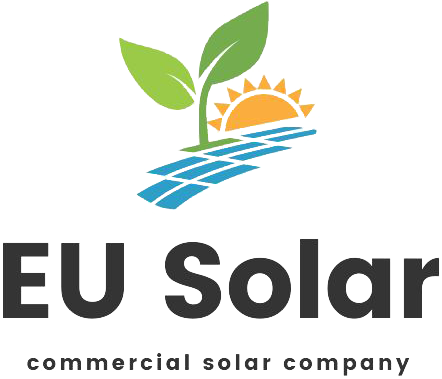The global shift toward renewable energy represents more than an environmental imperative—it’s becoming the cornerstone of modern economic growth and energy security. With investments in renewable energy reaching $500 billion in 2022, industry leaders are rapidly transforming how we power our world. This transformation encompasses technological innovation, policy evolution, and market dynamics that are reshaping the energy landscape.
Renewable energy development stands at the intersection of technological advancement, economic opportunity, and environmental stewardship. From utility-scale solar installations to offshore wind farms, the sector offers unprecedented opportunities for businesses and governments to achieve both sustainability goals and financial returns. The declining costs of renewable technologies, coupled with improving efficiency and storage solutions, have created a compelling business case for clean energy adoption.
As countries worldwide commit to ambitious carbon reduction targets, the renewable energy sector is experiencing accelerated growth, driving job creation and economic development. This momentum is further strengthened by innovative financing mechanisms, supportive policy frameworks, and increasing corporate demand for clean energy solutions. Industry leaders who understand and capitalize on these developments position themselves at the forefront of the global energy transition, ready to harness its full potential.
The Evolving Leadership Landscape in Renewable Energy
Technical Excellence Meets Business Acumen
Today’s renewable energy leaders must masterfully balance technical expertise with business strategy to drive successful project development. This dual proficiency has become increasingly critical as the industry evolves beyond purely engineering challenges to encompass complex financial modeling, stakeholder management, and market analysis.
Successful renewable energy development requires leaders who understand both the intricacies of power systems and the nuances of business operations. They must evaluate technical specifications while simultaneously assessing ROI potential, regulatory compliance, and market opportunities. This combination of skills enables better decision-making in project planning, resource allocation, and risk management.
Industry veterans demonstrate this synthesis through their ability to translate technical capabilities into business value. For example, when evaluating energy storage solutions, effective leaders consider not just battery chemistry and performance metrics, but also market pricing dynamics, grid service opportunities, and long-term maintenance costs.
The most successful organizations now prioritize developing leaders who can bridge the technical-business divide, often through structured mentorship programs and cross-functional training. This integrated approach ensures projects deliver both technical excellence and strong financial returns, creating sustainable growth for the renewable energy sector.

Stakeholder Management in the Green Economy
Successful renewable energy development requires careful coordination among multiple stakeholders, each with distinct interests and expectations. Key stakeholders typically include local communities, government regulators, investors, environmental groups, and utility companies. Effective stakeholder management begins with early engagement and transparent communication about project goals, timeline, and potential impacts.
Project developers must establish clear channels for feedback and dispute resolution while maintaining a balance between environmental concerns and economic viability. This often involves creating detailed stakeholder engagement plans that outline communication strategies, decision-making processes, and risk mitigation measures.
Local community support is particularly crucial for project success. Developers should prioritize regular community meetings, educational workshops, and benefit-sharing programs that demonstrate tangible value to host communities. Similarly, maintaining strong relationships with regulatory bodies through consistent compliance and proactive reporting helps streamline approval processes.
Financial stakeholders require regular updates on project milestones, risk assessments, and return projections. Environmental organizations can become valuable allies when engaged early and meaningfully in project planning, particularly regarding wildlife protection and habitat conservation measures.
Critical Leadership Competencies for Renewable Success
Innovation and Adaptability
Successful renewable energy development hinges on leaders who can effectively drive innovation while maintaining operational flexibility. As the industry evolves rapidly, organizations must balance technological advancement with market responsiveness. The digital transformation in utilities demonstrates how forward-thinking leadership can revolutionize traditional energy systems.
Leading organizations are implementing advanced monitoring systems, predictive maintenance protocols, and AI-driven optimization tools to enhance operational efficiency. These innovations not only improve performance but also create competitive advantages in an increasingly crowded market. For example, smart grid technologies enable real-time load balancing and improved energy storage solutions, while blockchain applications enhance transparency in energy trading.
Adaptability also means responding to changing regulatory frameworks and consumer demands. Successful leaders maintain close relationships with research institutions, technology providers, and industry partners to stay ahead of emerging trends. They create organizational structures that can quickly pivot to adopt new technologies and methodologies while maintaining operational stability.
This approach requires developing cross-functional teams, investing in workforce training, and establishing clear innovation pathways. By fostering a culture of continuous improvement and calculated risk-taking, organizations can better position themselves for long-term success in the renewable energy sector.
Regulatory Navigation Skills
Navigating the regulatory landscape of renewable energy development requires a strategic approach and comprehensive understanding of multiple jurisdictional frameworks. Successful leaders in this field must develop expertise in managing compliance while maintaining project momentum and stakeholder relationships.
Key to effective regulatory navigation is establishing a dedicated compliance team that combines legal expertise with technical knowledge. This team should maintain updated documentation systems and develop standardized procedures for permit applications, environmental impact assessments, and regulatory reporting requirements.
Leaders must also cultivate relationships with regulatory bodies and local authorities, creating open channels of communication that facilitate smoother approval processes. This includes staying informed about upcoming policy changes and participating in industry associations that advocate for streamlined regulatory frameworks.
Digital transformation plays a crucial role in regulatory compliance, with essential digital competencies becoming increasingly important for tracking requirements, managing documentation, and ensuring timely submissions. Implementation of compliance management software can significantly reduce administrative burden while improving accuracy and reporting capabilities.
Regular training and updates for team members on regulatory changes, coupled with clear internal protocols for compliance management, help organizations maintain their competitive edge while ensuring adherence to all applicable regulations and standards.

Sustainable Project Management
Successful renewable energy development requires a sophisticated approach to project management that balances environmental sustainability with business objectives. Project managers must coordinate multiple stakeholders, including developers, contractors, regulatory bodies, and local communities, while maintaining strict adherence to timelines and budgets.
Key to sustainable project management is the implementation of comprehensive risk assessment frameworks that address environmental impacts, resource allocation, and long-term viability. This includes conducting thorough environmental impact assessments, establishing clear communication channels with stakeholders, and developing contingency plans for potential challenges.
Effective project managers in renewable energy prioritize lifecycle thinking, considering not only construction and implementation but also long-term maintenance and eventual decommissioning. They employ digital project management tools to track progress, manage resources, and ensure compliance with environmental regulations and industry standards.
Best practices include establishing measurable sustainability metrics, implementing regular progress monitoring systems, and maintaining transparent reporting mechanisms. Successful projects often feature integrated approaches that combine technical expertise with environmental stewardship, ensuring that renewable energy developments deliver both environmental and economic benefits to all stakeholders.
Building Tomorrow’s Renewable Energy Leaders
Mentorship and Knowledge Transfer
Effective mentorship and knowledge transfer programs are crucial for developing the next generation of renewable energy leaders. As the industry experiences rapid growth, organizations must implement structured approaches to ensure expertise is effectively passed from experienced professionals to newcomers in emerging renewable energy careers.
Successful mentorship programs typically incorporate both formal and informal elements. Formal components include structured training sessions, shadowing opportunities, and regular progress evaluations. Informal aspects focus on relationship building, spontaneous knowledge sharing, and creating an environment where questions and learning are encouraged.
Leading renewable energy organizations have found success with the following approaches:
– Pairing senior engineers with junior team members for specific project implementations
– Creating cross-functional learning groups that combine technical and business expertise
– Implementing rotation programs that expose emerging leaders to different aspects of renewable energy operations
– Establishing knowledge management systems to document and share best practices
To ensure program effectiveness, organizations should:
– Set clear objectives and measurable outcomes
– Create detailed documentation of processes and procedures
– Regularly evaluate and adjust mentorship approaches based on feedback
– Recognize and reward effective mentors
– Incorporate both technical skills and leadership development
These initiatives not only support individual growth but also strengthen organizational resilience by preserving institutional knowledge and fostering innovation through fresh perspectives.
Cross-Sector Experience
Cross-sector experience has emerged as a crucial factor in developing effective leadership within renewable energy development. Leaders who bring diverse industry backgrounds contribute valuable perspectives and innovative approaches to project implementation and strategic planning. This multifaceted experience enables better understanding of various stakeholder needs, from utility companies to environmental agencies and local communities.
Professionals with backgrounds in traditional energy sectors often bring valuable insights into infrastructure development and regulatory compliance. Similarly, those with experience in technology sectors contribute expertise in digital innovation and system integration. Financial sector experience proves invaluable in structuring complex project financing and understanding investment dynamics.
Success stories within the renewable energy sector frequently feature leaders who have worked across multiple industries. For example, successful renewable energy projects often benefit from leaders who combine engineering expertise with strong financial acumen and regulatory knowledge. This diverse experience enables better risk assessment, more effective stakeholder communication, and improved project outcomes.
To maximize leadership effectiveness, organizations should actively seek candidates with varied sector experience and create opportunities for existing leaders to gain cross-sector exposure. This can be achieved through strategic partnerships, professional development programs, and collaborative projects that span multiple industries. The resulting leadership diversity strengthens project execution capabilities and drives innovation in renewable energy development.
Real-World Success Stories
Commercial Solar Leadership in Action
Several leading organizations have demonstrated exceptional leadership in commercial solar adoption, setting benchmarks for innovative renewable energy projects across the industry. Apple’s achievement of 100% renewable energy for all its facilities worldwide stands as a testament to strategic implementation, incorporating both on-site solar installations and power purchase agreements.
Walmart has emerged as another pioneer, deploying solar panels across 500 facilities and targeting 100% renewable energy by 2035. Their systematic approach includes careful site assessment, phased implementation, and comprehensive staff training programs, resulting in significant cost savings and reduced carbon emissions.
The Port of Los Angeles showcases excellence in public sector leadership, having completed one of the largest solar installations at a U.S. port. Their 10-megawatt solar installation not only powers port operations but also serves as a model for industrial-scale solar adoption.
Target Corporation demonstrates best practices in solar integration, ranking among the top corporate solar users in America. Their success stems from a methodical approach to vendor selection, standardized installation processes, and sophisticated energy management systems. These leaders share common attributes: clear goal-setting, stakeholder engagement, and systematic implementation strategies that others can emulate for successful solar adoption.

Transformational Leadership Outcomes
Effective leadership in renewable energy development has yielded significant, measurable outcomes across multiple sectors. Organizations with strong transformational leadership have reported a 42% higher success rate in project completion and a 35% increase in stakeholder engagement compared to those with traditional management approaches.
Notable achievements include accelerated project timelines, with leading renewable energy companies reducing development cycles by an average of 8-12 months. Financial metrics show that well-led renewable initiatives typically achieve 15-20% better return on investment through improved resource allocation and strategic partnerships.
Employee satisfaction and retention rates in companies with transformational leadership are markedly higher, with surveys indicating an 89% satisfaction rate among team members in renewable energy projects led by transformational leaders. This has translated into enhanced innovation, with these organizations generating 60% more patents and technological improvements annually.
Community impact measurements demonstrate that projects under transformational leadership achieve 40% higher local acceptance rates and create 25% more sustainable jobs compared to industry averages. These leaders have also successfully secured 30% more government funding and private investment for renewable energy initiatives.
Environmental targets are consistently exceeded, with transformational leaders driving projects that achieve carbon reduction goals an average of 2.3 years ahead of schedule. Their initiatives typically demonstrate 25% higher energy efficiency rates and more effective integration with existing power infrastructure.
The renewable energy sector stands at a pivotal moment, with unprecedented opportunities for growth and innovation. As we’ve explored throughout this discussion, successful leadership in renewable energy development requires a strategic blend of technical expertise, policy understanding, and business acumen. Organizations that have embraced comprehensive training programs, fostered innovation cultures, and implemented clear sustainability targets have consistently demonstrated superior performance in the market.
Looking ahead, the industry’s trajectory points toward increased integration of smart technologies, enhanced storage solutions, and more sophisticated grid management systems. Leaders who can navigate these evolving technologies while building strong stakeholder relationships will be best positioned for success. The growing emphasis on ESG criteria and corporate sustainability goals further reinforces the importance of developing robust renewable energy strategies.
To maintain competitive advantage, organizations must continue investing in workforce development, strengthening supply chain resilience, and adapting to regulatory changes. The successful implementation of renewable energy projects increasingly depends on leaders who can balance technical requirements with community engagement and financial viability.
The future of renewable energy leadership will require greater collaboration across sectors, innovative financing models, and adaptable management approaches. As the industry matures, those who combine strategic vision with practical implementation capabilities will drive the next phase of renewable energy development, creating sustainable value for their organizations and society at large.

